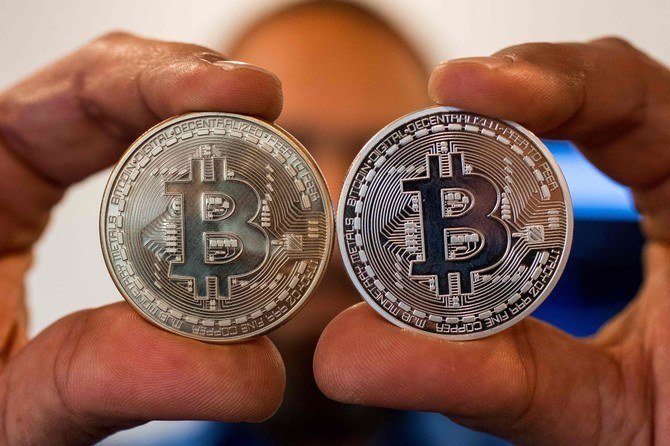Digital currencies can boost inclusion in Middle East and Asia

Digital currencies are emerging as a beacon of hope in the often-elusive dream of financial inclusion, particularly in Asia and the Middle East.
The latest evolution of this promise comes in the form of central bank digital currencies, which are poised to revolutionize cross-border payments. By offering more efficient and inclusive financial solutions, central bank digital currencies can reshape the financial landscape and create new opportunities in regions long underserved by traditional banking systems. However, they need to address inherent inefficiencies of the payment system if they are to achieve their full potential.
For the uninitiated, central bank digital currencies, popularly known as CBDCs, are digital forms of official currencies issued and regulated by nations’ central banks. To understand how they work, think of a digital wallet on your smartphone or in a mobile banking app; instead of holding only your bank’s default digital currency, your wallet could also hold the central bank’s digital currency, which could be used to pay for goods and services, transfer money to others, or savings, just like physical cash.
CBDCs offer inherent advantages in financial transactions, including greater transparency and security, thereby helping to reduce fraud and money laundering.
Judging by the growing number of nations exploring the potential implementation of a CBDC, they are, quite literally, gaining currency. The International Monetary Fund recently reported that 130 nations, together accounting for 98 percent of the world’s gross domestic product, were investigating the possible introduction of a CBDC. A survey conducted by IMF country teams indicated that of 31 economies in the Middle East and Central Asia, 19 were either considering or actively exploring the possibility.
One of the most significant benefits of digital currencies is their potential to expand access to financial services. In many parts of Asia and the Middle East, large segments of populations remain unbanked or underbanked, often as a result of lack of physical banking infrastructure or stringent identification requirements. Digital currencies, accessible using mobile phones and the internet, offer a viable solution to this. By giving them the ability to bypass traditional hurdles to banking, more individuals can participate in the financial system, making it easier for them to save, invest, and make transactions.
Moreover, digital currencies can facilitate faster transaction times than traditional banking systems. This efficiency can help individuals and businesses manage their finances more effectively and with fewer delays.
Digital currencies can also offer a safer and more secure alternative in economies still heavily reliant on cash. They reduce the risks associated with carrying and storing cash, especially in high-crime areas.
Judging by the growing number of nations exploring the potential implementation of a central bank digital currency, they are, quite literally, gaining currency.
Ehtesham Shahid
The high cost of financial transactions is a barrier for many people in these regions. Traditional banking systems and remittance services often impose hefty fees, which can be prohibitive to people on low incomes. Digital currencies lower these costs significantly. Reduced transaction fees, including for cross-border remittances, mean digital currencies make the transfer of money, domestically and internationally, more affordable.
This is particularly beneficial to migrant workers in the Middle East, many of whom send money home to their families in Asia. In other words, lower transaction fees make more financial services more affordable to more people.
Digital currencies also enhance the efficiency and speed of financial transactions. Traditional banking processes can be slow and cumbersome, especially for international transfers that require several intermediaries.
Digital currencies can facilitate instant transactions, reduce wait times, and generally improve the user experience. This immediacy is crucial for businesses and individuals who rely on timely payments to manage their finances and sustain their operations.
Governments in Asia and the Middle East are increasingly recognizing the potential of digital currencies to support financial inclusion initiatives.
Central banks are also exploring the potential of CBDCs to enhance monetary policy, improve payment systems, and reduce reliance on cash. Such initiatives in Gulf Cooperation Council member countries aim to modernize financial systems and extend their reach to underserved populations.
While the benefits are clear and far-reaching, the adoption of digital currencies can be challenging due to low levels of digital and financial literacy, limited internet access in remote areas, and regulatory uncertainties.
Governments and financial institutions must therefore invest in education and infrastructure to ensure the benefits can be fully realized. Additionally, robust regulatory frameworks are essential to protect users and maintain economic stability in the long run.
Digital currencies have the potential to boost financial inclusion in Asia and the Middle East, offer solutions to long-standing barriers and create new opportunities for economic participation. By making financial services more accessible, affordable, and efficient, digital currencies can play a pivotal role in transforming the economic landscape of these regions.
As more governments, businesses and individuals embrace this digital revolution, the potential for a more inclusive and prosperous future becomes increasingly attainable.
However, efforts to realize this potential will require that the numerous technical, regulatory, and educational challenges are addressed, to ensure digital currencies can be effectively and safely integrated into the global financial system.
Amid the inherent obstacles, such as low digital and financial literacy, distrust in financial institutions, and limited wealth, the adoption of CBDCs might be restricted, yielding only minimal advantages. While the benefits remain the same, each country must therefore weigh the opportunities alongside the associated challenges it will face.
- Ehtesham Shahid is an editor and researcher based in the UAE. X: @e2sham
Disclaimer: Views expressed by writers in this section are their own and do not necessarily reflect Arab News’ point of view

